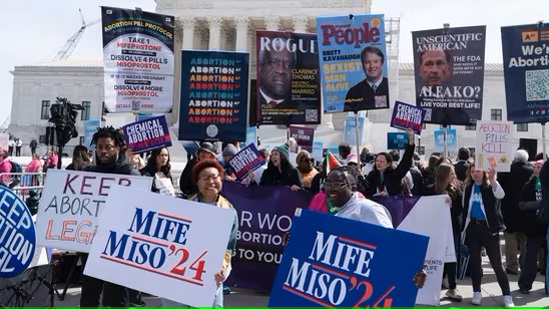Anti-abortion advocates face frosty reception at the Supreme Court

In 2016, anti-abortion activists cheered as Donald Trump won the presidency, believing his promise to appoint justices who would overturn Roe v Wade. Fast forward to 2024, and the Supreme Court’s recent oral argument on March 26th regarding mifepristone, a medication used in the majority of abortions in the US, suggests a different outcome than what anti-abortion advocates had hoped for.
The case, Dobbs v Jackson Women’s Health Organization, marked the first abortion case heard by the Court since conservative justices overturned the constitutional right to abortion two years prior. At stake in this argument was the accessibility of mifepristone, a crucial medication utilized in nearly two-thirds of abortions performed in the US.
Erin Hawley, representing the plaintiffs, argued that the FDA’s policy on mifepristone presented her clients with a difficult choice. She portrayed the situation as a “Hobson’s choice,” where doctors were forced to choose between following their beliefs or providing care to women who required emergency medical attention after taking abortion pills. According to Ms. Hawley, this dilemma was “intolerable” for her clients.
The outcome of the oral argument suggests that the Court may not be inclined to uphold further restrictions on mifepristone, much to the disappointment of anti-abortion activists.
This turn of events marks a setback for those seeking to limit access to abortion care in the US. Despite initial hopes that the Supreme Court’s conservative majority would bolster their cause, the recent oral argument indicates otherwise. The Court’s skepticism towards the arguments presented by anti-abortion advocates hints at a potential shift in the judicial landscape concerning reproductive rights.
As the debate over abortion continues to unfold, the fate of mifepristone and its accessibility remains uncertain. For now, anti-abortion activists must contend with the possibility that their efforts to restrict abortion access may face significant legal hurdles in the nation’s highest court.
Repurposed article originally published in the Hindustan Times









